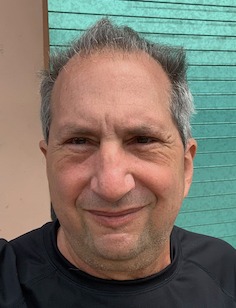Over 40 years pursuing dream projects in business, politics, and finance

My father always said, “Follow your dreams”, but he never explained how. I had to figure it out on my own!
Today, I help founders, leaders, and investors achieve their dreams and build the Ecosystem Sector without the steep learning curve.
Book a free discovery calll with me to learn more.
Career Highlights
1983
Water & Energy Conservation
I started my first environmental business at age 23. My company saved clients millions of dollars worth of water, energy, and maintenance.
1990
National Forest Campaign
I co-founded a US forest ecosystem protection NGO in Washington, DC and led a campaign that reversed a devastating USDA Forest Service policy. This helped reduce logging by 80% on 200 million acres of federal forestlands, increased private forestland profits, and sparked new business models in ecosystem restoration. I also mentored rising environmental leaders nationwide.
2001
Ecological Finance
I founded EcoStructure (later EcoSector) to build a global network of investment funds responsible for the health of the biosphere, and to prove that ecosystems are a living infrastructure as vital to the economy as roads and bridges.
2007
Physical Product Business
I invented the Butterfly Wallet, the world’s thinnest trifold wallet, as a playful side project — a hands-on lesson in design, manufacturing, distribution, and retail partnerships. The business is still thriving today.
2010
Business Develpment Services
I built a consulting business which served over 160 clients. One client grew her company from little more than a good idea into a multimillion-dollar valuation business in just six months by following my strategic plan — later acquired by a major Wall Street financial firm.
2016
Plant-Based Economy
Switching to a plant-based diet helped me reverse long-standing chronic illnesses and experience the deep connection between human and ecosystem health. From that powerful transformation, I launched Vegan Launch in 2018 which provided advanced financial strategies and training for plant-based entrepreneurs.
2023
Mentoring for System Change
I began helping people from all walks of life achieve their dreams, and in 2025 began subsidizing my mentoring for those who wish to focus on growing the peace-based economy, from small projects to scalable enterprises aimed at transforming entire sectors.
2025
Make My Nut Recurring Payment Community
During my two years of mentoring ethical business founders, one thing stood out. Most founders can’t afford to quit their day job and focus on their vision. So, in 2025, I created a “Patreon for Founders & Leaders” called Make My Nut to help people quit their day jobs to pursue their dream business or project, and achieve more success raising capital or grants if required to fulfill their mission.